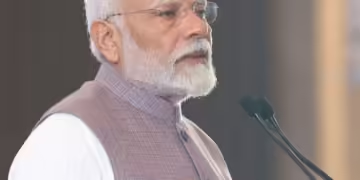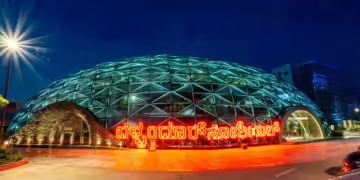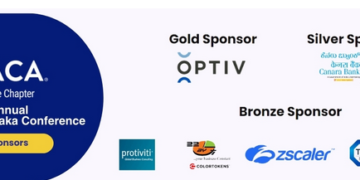- Repsol obtained a net income of €4.251 billion in 2022, a year marked by uncertainty, volatility, and complex market dynamics due to the invasion of Ukraine.
- In 2022, Repsol invested €4.182 billion to advance its transformation, 40% more than the previous year, mainly in the Iberian Peninsula and the United States. To boost its multi-energy profile, it plans to allocate historic organic investments of more than €5 billion in 2023.
- The company’s integrated business model and the 2021-2025 Strategic Plan were key to a positive performance. Even so, the 2022 result – added to the €2.499 billion income in 2021 – still falls short of offsetting the losses in 2019 and 2020 (€7.105 billion).
- The company has taken measures to ensure the purchasing power of its employees is maintained, implementing salary increases and extraordinary bonuses. It agreed with the unions a new Framework Agreement, retroactive to January 1, 2021. With that, the average remuneration in Spain increased by 9.4%, compared to the year before.
- To help customers in an inflationary context, Repsol earmarked more than €500 million for additional fuel discounts at its service stations in Spain. The company was the first to implement these measures which are ongoing even after the end of the state rebate.
- Repsol made an additional effort in 2022 to guarantee supply in Spain amid tight international markets. It allocated more than €2 billion to increase its inventories.
- Repsol’s activity in 2022 resulted in the largest tax contribution in the Group’s history, more than €17 billion, of which more than 70% was paid in Spain (12 billion). Repsol is the Ibex-35 company that pays the most taxes in the country.
- Cash generation enabled a 61% reduction in net debt during the year. In addition, Repsol announced an 11% increase in cash remuneration for its shareholders in 2023 and carried out the redemption of 200 million shares, benefiting more than 520,000 investors, the vast majority of whom are minority investors and based in Spain. A new share buyback program and a capital reduction will be implemented in 2023.
Josu Jon Imaz, CEO of Repsol:
- “We are aware that our work is an essential service to society. For us, it is always a priority to fulfill this responsibility that emerges with even more importance, if possible, in complicated times such as those we have experienced in recent years. In 2022, we strove to guarantee supply, reduce the impact of the energy crisis on our customers, and invest in Spain’s industrial future, while continuing to strengthen our profile as a multi-energy company and making progress in decarbonization.”
- Statements by Josu Jon Imaz, CEO of Repsol
“Europe and Spain’s energy transitions should be less ideological and more technological; it should be a transition that addresses how to be more sustainable, but also how to guarantee energy supply and cheaper and more competitive energy for citizens and companies.”
“The high energy prices we pay today are not only a consequence of the war in Ukraine. The shortage of energy products already existed before. In Europe, we are highly dependent on imports because regulators have preferred to forget the need to invest in oil and gas and in refining capacity.”
“Energy prices are going up because demand is rising while, contrary to logic, obstacles are being imposed on the production of some energy products. High prices are no windfall, they are the consequence of bad decisions taken in Europe.”
“We are going to allocate more than €5 billion to organic investment this year, 2023, the highest figure in our history. A 35% of our investments will be earmarked to low-carbon projects.”
“To consider extraordinary a profit that is obtained from a great investment effort and penalize it against one that is obtained by importing products from other continents without creating a single industrial job is not just unfair but incomprehensible and harmful to the Spanish economy.”
“The social debate on corporate profits must be put in context. Populist messages only serve to hinder business activity, provoke distrust in investors, reduce investment and economic activity, reduce tax collection, and put industrial employment at risk. In the face of these messages, Repsol is committed to a responsible approach to society.”
Other milestones in 2022
- On December 12, Repsol signed an agreement to acquire Asterion Energies, furthering its ambition to become a global renewable energy player. The deal includes a portfolio of 7,700 megawatts (MW) of renewable projects under development mainly in Spain and Italy, stable markets with great potential.
- Repsol reached agreements for the entry of minority partners in several renewable assets, which contribute to the objective of obtaining double-digit returns on its investments in this sector. In July, it established with Pontegadea its incorporation, with a 49% stake, in the Kappa photovoltaic solar complex. At the end of March, it signed the sale of a 49% stake in the Valdesolar photovoltaic project (Badajoz) with the investment company TRIG. In addition, in November 2021, Pontegadea also acquired a 49% stake in the Delta wind farm.
- The month of March saw the start of the last phase of construction of the first advanced biofuels plant in Spain that the company is constructing at its Cartagena refinery. This facility, in which Repsol will invest €200 million, will supply 250,000 tons per year of advanced biofuels, which can be used in today’s planes, ships, trucks and cars without the need for engine modifications. They will be produced from waste and their use will reduce emissions by 900,000 tons of CO2 per year. Subsequently, in December, the European Investment Bank (EIB) granted a loan of €120 million to Repsol to support the construction and operation of the plant.
- On January 19, SHYNE, the largest renewable hydrogen consortium in Spain, was presented. It comprises 33 entities from different sectors that will deploy projects expected to generate more than 13,000 jobs. Repsol is leading this initiative in line with its renewable hydrogen strategy, which it presented in October 2021. The company plans to invest €2.549 billion by 2030 in this area, which is of great importance for the energy model of the future.
- In April, the company acquired a stake in Canada’s Enerkem, a world leader in the production of renewable fuels and chemicals through the gasification of non-recyclable waste. This investment will enable Repsol to accelerate its decarbonization projects by integrating Enerkem’s technology into its industrial facilities and future plants.
- In October, Repsol became a shareholder of Acteco, an integrated waste management and recovery company, to ensure its access to plastic waste and boost the circular economy of its products. Following Repsol’s entry, Acteco will double its plastics recycling capacity in five years. The circular economy is one of Repsol’s main axes of transformation to achieve zero net emissions by 2050.
- On April 27, Repsol began producing electricity at the 62.5 MW Jicarilla 2 photovoltaic solar farm, its first renewable project in the United States. At the same site, the company is developing another photovoltaic project, Jicarilla 1, with 62.5 MW of installed capacity and 20 MW of battery storage. In addition, Repsol intends to invest in two projects of more than 600 MW each in the state of Texas, which will become the Group’s largest solar installations to date.
- Also in April, the company signed an agreement with Ørsted to identify and, if appropriate, jointly develop floating offshore wind projects in Spain. This alliance will combine Repsol’s experience as a global multi-energy supplier and Ørsted’s track record as a world leader in offshore wind.
- In July, Repsol began marketing 100% renewable electricity and gas to residential customers in Portugal, as well as electricity to businesses.
- In early February, Repsol acquired Capital Energy’s portfolio of 25,000 residential and SME electricity customers. Additionally, in December, the portfolio of Alterna of close to 70,000 customers, acquired from the Dominion group, was consolidated.
- In early March, Repsol formed a joint venture with Telefónica, Solar 360, which offers a comprehensive self-consumption solution to its customers.
- In July, Repsol and Suma Capital created SC Net Zero Tech Ventures, a new venture capital investment fund focused on energy transition technologies. The fund accompanies companies developing technologies aimed at decarbonization and the circular economy to foster their growth and international expansion and accelerate their application on an industrial scale.
- Repsol obtained permits to evaluate the geothermal potential on the island of Gran Canaria. Geothermal energy produces renewable energy in a continuous and stable manner, without CO2 emissions, and it could provide the Canary Islands’ archipelago with greater energy independence.
- Average hydrocarbon production in 2022 was 550,000 barrels of oil equivalent per day.
- Repsol’s industrial complexes processed 42.1 million tons of oil equivalent in 2022.










































